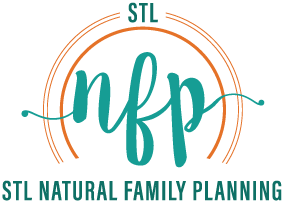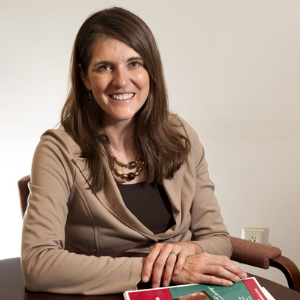by Julia DiSalvo
Saint Louis is blessed with a strong network of NFP supports and resources, including a growing number of instructors in a variety of NFP methods and programs. In many countries and regions of the U.S., however, access to information and services related to the Creighton Model FertilityCare System (CrMS) is limited or nonexistent. Alia Keys is working to close this gap and, in her words, “spread the word wherever it may take us.”
A Creighton Model practitioner and educator (one who teaches and trains instructors), Alia facilitates and presents at CrMS education programs around the world. She recently returned from Mexico City, the regular host for a Latin American program that serves several countries including Argentina, Brazil, Columbia, Mexico, and Peru. This particular program is only three years old, and some students graduate to become trailblazers, opening the first and only Creighton Model practice for miles around.
“It’s a neat experience…to see how eager they are to take [this wisdom] back to their countries,” she remarks. Reflecting on her on-site and direct observations of the students, she says, “It’s great to “watch them in their element [and see] how much they’re putting into practice.”
International and domestic CrMS education programs are accredited by the American Academy of FertilityCare Professionals (AAFCP) and based on the original, core curriculum created by Dr. Hilgers and the Pope Paul VI Institute, where the Creighton Model was born. As interest in the Model grew, it became impractical for all students to travel to Omaha [Nebraska, the Institute’s home]. Since 1978, CrMS education programs have involved a combination of location-based and remote (online) learning experiences, which has made the expansion of these programs possible. They include two in-person education phases, two supervised practicums, and an on-site visit in which educators like Alia observe client (patient) meetings in the students’ home countries. Students also take a final assessment prior to graduation. There are now 17 independent education programs, including one here in St. Louis.
“This is the kind of thing you want to share with other people,” Alia declares. A Creighton-practicing wife and mother of five, she is familiar with every aspect of the NFP lifestyle: the daily challenges and blessings, the health benefits and medical connections, the knowledge and tools it takes to successfully walk with a couple on this lifelong journey. She still meets with clients locally and considers it critical to her career and continuing formation: “Staying close to the groundwork is an important piece. You’re working with people in the most intimate and vulnerable parts of their lives.”
Considering the diversity of global cultures, she couldn’t be more right. It’s encouraging to see that despite our political, religious, and social differences, something as universal as maternal health prevails.
The Pope Paul VI Institute and affiliate education programs are currently training dozens of students throughout Europe, the U.S., Latin America, Africa, Australia, and Asia (Hong Kong). The Institute also hosts an annual training program that draws practitioners, NFP-supportive doctors, and OBs from 15–20 countries a year, including Australia, Egypt, Sudan, and others.

